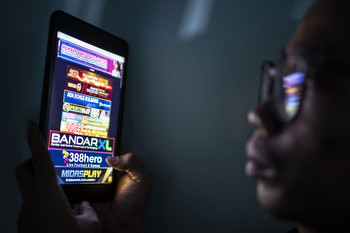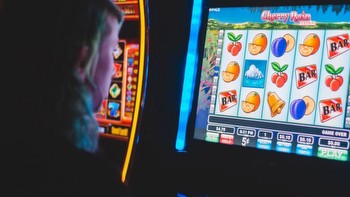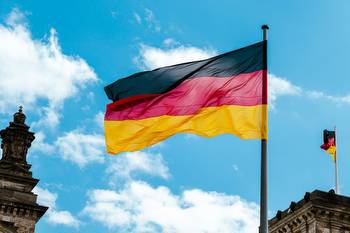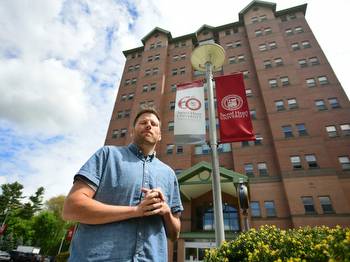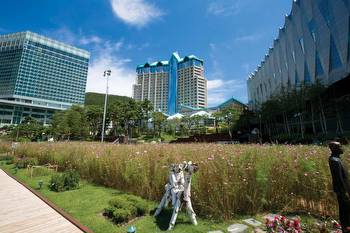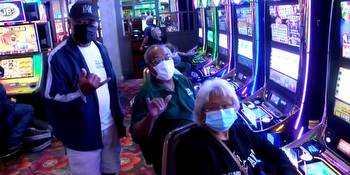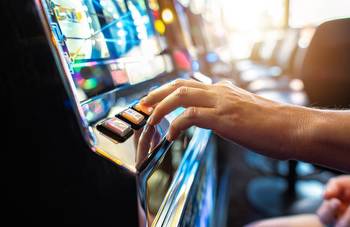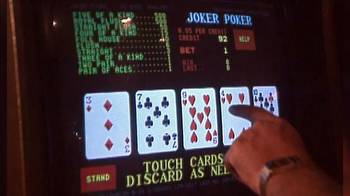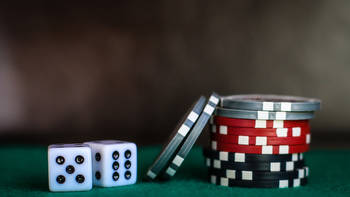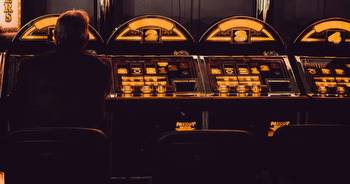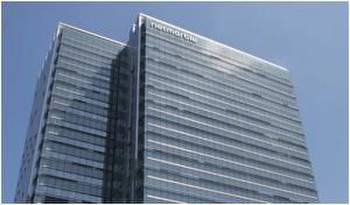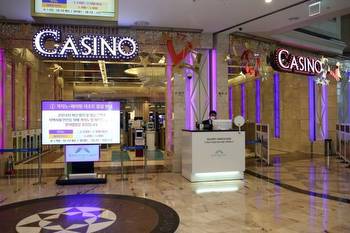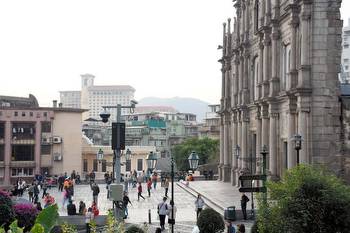Gambling addiction on the rise as illegal gaming market flourishes
Mr. Park, a 27-year-old office worker, got addicted to gambling eight years ago at state-run casino Kangwon Land in Jeongseon, Gangwon.
For four years, he's been gambling at the Texas Hold 'em pubs in the Ingye-dong neighborhood of Suwon, Gyeonggi.
The area has one of the highest concentrations of poker pubs in Korea.
“A large number of hold’em pubs in Suwon have become illegal gambling dens, with some operating around the clock,” Park said. “Why go to far-off Kangwon Land when I can gamble in my town.”
He's dropped 500 million won ($380,213) on his gambling habit so far.
The paradigm of domestic gambling is shifting, with the focus rapidly moving from state-regulated legal gambling to illegal gambling outside the government's watch.
While the number of people with gambling addictions is spiking, ironically, the sales of legal casinos and gambling places are falling. Gamblers are turning to illegal gambling instead.
The National Gambling Control Commission estimates that 2.37 million Korean adults are addicted to gambling. The addiction prevalence rate is at 5.5 percent, nearly four times higher than in Sweden.
The number of patients who sought medical treatment for gambling addiction has more than doubled, rising from 1,119 in 2017 to 2,312 last year.
A total of 2,403 individuals received treatment for gambling addiction in the first eight months of this year, already surpassing last year’s 12-month figure.
The severity of gambling addiction comes into even sharper relief when compared to drug addiction.
The number of drug criminals hit a record last year at 18,365. If we take into consideration the estimated number of undetected drug crimes, the number rises to about 520,000.
Even if we assumed that all those drug criminals suffered from addiction, the total would still amount to less than a quarter of the number of people addicted to gambling.
The authorities attribute the rapid rise in gambling addiction to the explosive expansion of the illegal gambling market.
The National Gambling Control Commission estimates that illegal gambling sales grew from 70 trillion won in 2016 to 102 trillion won last year.
In contrast, legal gambling sales are declining. Kangwon Land’s annual sales fell 30 percent between 2016 and last year, from 1.6 trillion won to 1.2 trillion won. Betting on horses and cycle racing slumped, too.
“As the illegal gaming market expands, Kangwon Land's potential growth is under constant downward pressure,” said Lee Ki-hun, a financial analyst from Hana Financial Investment. “Gamblers find Kangwon Land less enticing because they can now gamble whenever or wherever they like.”
Illegal gambling is booming both online and offline, though the focus is heavier on the former.
According to the National Gambling Control Commission, online gambling accounted for 99 percent of illegal gambling busts last year. Online gambling also accounted for 71 percent of treatment cases by the Korea Problem Gambling Agency.
“Online gambling sites have sprung up everywhere as they can be easily created through copy-and-paste and altering some minor rules,” said Yun Woo-suk, a professor at the Department of Police Administration at Keimyung University.
A third-year high school student said he used to manage and recruit new gamblers among his classmates and juniors. “One of my friends who used to do the same work as me just started his own gambling business,” he said.
The offline illegal market is also considerable, having grown as illegal gambling dens started to disguise themselves as ordinary poker pubs and board game cafes in popular nightlife districts.
Mr. Chang, 35, has run a clean, legitimate Texas Hold’em pub in Suwon since 2019. “I have been losing my customers as they are searching for so-called 'cash pubs' which allow them to do illegal gambling,” Chang said.
Several factors have contributed to the growth of the illegal gambling market.
“Covid-19 not only shrank legitimate offline gambling businesses but created a balloon effect in the gambling industry,” said Professor Seo Won-seok from the College of Hotel & Tourism Management at Kyung Hee University.
“Also, legal gambling could trigger illegal gambling in similar formats,” said Kim Kyo-ho, the head of a civic group combating addiction.
“The protracted economic stagnation spread ‘get-rich-quick’ sentiment across the nation. This might have affected people’s gambling mindsets,” said Chang An-sik, a professor of sociology at Korea University.
Gangsters are leading actors in the fast-growing illegal gambling market.
Ulsan Police arrested 13 gangsters from 13 organized crime syndicates who ran 46 illegal gambling sites worth 10 trillion won based on their deposits. They are accused of opening 46 illegal gambling sites with offices in the United States and Cambodia and making more than 100 billion won in profit from the 30,000 gamblers they recruited.
Gyeonggi Nambu Provincial Police are investigating two gangs on charges of running an illegal gambling den disguised as a Hold 'em pub.
“The area in Paju, Gyeonggi, where Hold 'em pubs are clustered, is so hot that it's called Korea's Macau,” said a Paju-based gangster whose organization is running an illegal Hold 'em pub.
“Among gangsters, illegal gambling has become a key area of interest as it can generate lots of money with less risk,” said Kim Jin-wook, a board member of the Korea Problem Gambling Agency.
However, the authorities' ability to detect and investigate illegal gambling has been unable to match the market's explosive growth.
In 2020, the number of online gambling busts was over 5,400. Last year, the figure fell to 2,838.
“Unless there is a whistle-blower, it is hard to trace or identify the person orchestrating the illegal gambling scheme because most of the sites rely on foreign servers and frequently change their domains,” an official from the police said.
Even after operators are caught, they often resume their businesses after changing their domain as if nothing happened.
Lim Chang-yeong, the head of the violent crime investigative team at Gyeonggi Nambu Provincial Police, said Hold 'em pubs — a leading illegal offline gambling market — are hard to bust because “they pretend to be lawful businesses registered as regular restaurants.”
According to the Ministry of Food and Drug Safety’s resources, around 99 percent of about 1,200 Hold 'em pubs nationwide are registered as regular restaurants.
“Lax punishments imposed on illegal gambling crimes aggravate the problem,” said Kim Sun-wook, a member of the National Gambling Control Commission. “Offenders usually get fines or suspended sentences.”
A man in his 40s — identified by family name Yoon — was arrested after stealing industrial pharmaceuticals from his company’s inventory and selling them to fund his gambling. He did this multiple times.
He could not overcome his addiction to illegal Sports Toto gambling. Whenever he arrived at work in Siheung, he rushed to analyze players’ performances rather than start his duties, and he constantly fled to the toilet to check the game results.
Addicted people all say the ultimate destination is a game called “baccarat” with quick betting decisions and results. The quick cycle makes people more thrilled and addicted.
According to the police, baccarat accounts for more than 10 percent of illegal gambling. Back in 2018, it accounted for only 5 percent.
An alarming trend is that the barrier to illegal gambling has been lowered significantly. Now, minors are gambling using their mobile phones.
Among nationwide middle school and high school first graders, more than three percent were identified as at-risk for illegal gambling, according to the Ministry of Gender Equality and Family’s survey.
“Of the 25 students in our class, at least three or four routinely enjoy illegal gambling,” said a 14-year-old middle schooler in Seoul.
Mixed forms of gambling that blur legal lines and incorporate different types of assets, including stocks, have made gambling more uncontrollable.
Lee, who worked for a construction company, got hooked on gambling after his first encounter with gambling at Kangwon Land in 2010.
“If you earn 2.7 million won per month and see 5 million won just disappear in the blink of an eye in baccarat, it is hard to be satisfied with your regular wages,” Lee said.
Then, Lee dipped his toes into illegal online gambling and explored the world of stock markets and cryptocurrency. “I get a dopamine hit whenever I win or lose a large sum of money. After experiencing all the ups and downs, I now believe all types of behavior that involve betting some money is a type of gambling.”
The public gambling agency provides extensive therapy, noting the possibility that cryptocurrency and day trading in the stock market could be a means of gambling.
Ha Ju-won, a psychiatrist specializing in addiction treatment, said, “Stock investments and trading cryptocurrency can be risky if people treat them as a means to earn a lot of money in a flash. It poses a higher risk because people confuse what they do as investing, not gambling.”
BY KIM MIN-JOONG, SON SUNG-BAE, SHIN HYE-YEON, LEE SOO-JUNG [lee.soojung1@joongang.co.kr]
For four years, he's been gambling at the Texas Hold 'em pubs in the Ingye-dong neighborhood of Suwon, Gyeonggi.
The area has one of the highest concentrations of poker pubs in Korea.
“A large number of hold’em pubs in Suwon have become illegal gambling dens, with some operating around the clock,” Park said. “Why go to far-off Kangwon Land when I can gamble in my town.”
He's dropped 500 million won ($380,213) on his gambling habit so far.
The paradigm of domestic gambling is shifting, with the focus rapidly moving from state-regulated legal gambling to illegal gambling outside the government's watch.
While the number of people with gambling addictions is spiking, ironically, the sales of legal casinos and gambling places are falling. Gamblers are turning to illegal gambling instead.
The National Gambling Control Commission estimates that 2.37 million Korean adults are addicted to gambling. The addiction prevalence rate is at 5.5 percent, nearly four times higher than in Sweden.
The number of patients who sought medical treatment for gambling addiction has more than doubled, rising from 1,119 in 2017 to 2,312 last year.
A total of 2,403 individuals received treatment for gambling addiction in the first eight months of this year, already surpassing last year’s 12-month figure.
The severity of gambling addiction comes into even sharper relief when compared to drug addiction.
The number of drug criminals hit a record last year at 18,365. If we take into consideration the estimated number of undetected drug crimes, the number rises to about 520,000.
Even if we assumed that all those drug criminals suffered from addiction, the total would still amount to less than a quarter of the number of people addicted to gambling.
The authorities attribute the rapid rise in gambling addiction to the explosive expansion of the illegal gambling market.
The National Gambling Control Commission estimates that illegal gambling sales grew from 70 trillion won in 2016 to 102 trillion won last year.
In contrast, legal gambling sales are declining. Kangwon Land’s annual sales fell 30 percent between 2016 and last year, from 1.6 trillion won to 1.2 trillion won. Betting on horses and cycle racing slumped, too.
“As the illegal gaming market expands, Kangwon Land's potential growth is under constant downward pressure,” said Lee Ki-hun, a financial analyst from Hana Financial Investment. “Gamblers find Kangwon Land less enticing because they can now gamble whenever or wherever they like.”
Illegal gambling is booming both online and offline, though the focus is heavier on the former.
According to the National Gambling Control Commission, online gambling accounted for 99 percent of illegal gambling busts last year. Online gambling also accounted for 71 percent of treatment cases by the Korea Problem Gambling Agency.
“Online gambling sites have sprung up everywhere as they can be easily created through copy-and-paste and altering some minor rules,” said Yun Woo-suk, a professor at the Department of Police Administration at Keimyung University.
A third-year high school student said he used to manage and recruit new gamblers among his classmates and juniors. “One of my friends who used to do the same work as me just started his own gambling business,” he said.
The offline illegal market is also considerable, having grown as illegal gambling dens started to disguise themselves as ordinary poker pubs and board game cafes in popular nightlife districts.
Mr. Chang, 35, has run a clean, legitimate Texas Hold’em pub in Suwon since 2019. “I have been losing my customers as they are searching for so-called 'cash pubs' which allow them to do illegal gambling,” Chang said.
Several factors have contributed to the growth of the illegal gambling market.
“Covid-19 not only shrank legitimate offline gambling businesses but created a balloon effect in the gambling industry,” said Professor Seo Won-seok from the College of Hotel & Tourism Management at Kyung Hee University.
“Also, legal gambling could trigger illegal gambling in similar formats,” said Kim Kyo-ho, the head of a civic group combating addiction.
“The protracted economic stagnation spread ‘get-rich-quick’ sentiment across the nation. This might have affected people’s gambling mindsets,” said Chang An-sik, a professor of sociology at Korea University.
Gangsters are leading actors in the fast-growing illegal gambling market.
Ulsan Police arrested 13 gangsters from 13 organized crime syndicates who ran 46 illegal gambling sites worth 10 trillion won based on their deposits. They are accused of opening 46 illegal gambling sites with offices in the United States and Cambodia and making more than 100 billion won in profit from the 30,000 gamblers they recruited.
Gyeonggi Nambu Provincial Police are investigating two gangs on charges of running an illegal gambling den disguised as a Hold 'em pub.
“The area in Paju, Gyeonggi, where Hold 'em pubs are clustered, is so hot that it's called Korea's Macau,” said a Paju-based gangster whose organization is running an illegal Hold 'em pub.
“Among gangsters, illegal gambling has become a key area of interest as it can generate lots of money with less risk,” said Kim Jin-wook, a board member of the Korea Problem Gambling Agency.
However, the authorities' ability to detect and investigate illegal gambling has been unable to match the market's explosive growth.
In 2020, the number of online gambling busts was over 5,400. Last year, the figure fell to 2,838.
“Unless there is a whistle-blower, it is hard to trace or identify the person orchestrating the illegal gambling scheme because most of the sites rely on foreign servers and frequently change their domains,” an official from the police said.
Even after operators are caught, they often resume their businesses after changing their domain as if nothing happened.
Lim Chang-yeong, the head of the violent crime investigative team at Gyeonggi Nambu Provincial Police, said Hold 'em pubs — a leading illegal offline gambling market — are hard to bust because “they pretend to be lawful businesses registered as regular restaurants.”
According to the Ministry of Food and Drug Safety’s resources, around 99 percent of about 1,200 Hold 'em pubs nationwide are registered as regular restaurants.
“Lax punishments imposed on illegal gambling crimes aggravate the problem,” said Kim Sun-wook, a member of the National Gambling Control Commission. “Offenders usually get fines or suspended sentences.”
A man in his 40s — identified by family name Yoon — was arrested after stealing industrial pharmaceuticals from his company’s inventory and selling them to fund his gambling. He did this multiple times.
He could not overcome his addiction to illegal Sports Toto gambling. Whenever he arrived at work in Siheung, he rushed to analyze players’ performances rather than start his duties, and he constantly fled to the toilet to check the game results.
Addicted people all say the ultimate destination is a game called “baccarat” with quick betting decisions and results. The quick cycle makes people more thrilled and addicted.
According to the police, baccarat accounts for more than 10 percent of illegal gambling. Back in 2018, it accounted for only 5 percent.
An alarming trend is that the barrier to illegal gambling has been lowered significantly. Now, minors are gambling using their mobile phones.
Among nationwide middle school and high school first graders, more than three percent were identified as at-risk for illegal gambling, according to the Ministry of Gender Equality and Family’s survey.
“Of the 25 students in our class, at least three or four routinely enjoy illegal gambling,” said a 14-year-old middle schooler in Seoul.
Mixed forms of gambling that blur legal lines and incorporate different types of assets, including stocks, have made gambling more uncontrollable.
Lee, who worked for a construction company, got hooked on gambling after his first encounter with gambling at Kangwon Land in 2010.
“If you earn 2.7 million won per month and see 5 million won just disappear in the blink of an eye in baccarat, it is hard to be satisfied with your regular wages,” Lee said.
Then, Lee dipped his toes into illegal online gambling and explored the world of stock markets and cryptocurrency. “I get a dopamine hit whenever I win or lose a large sum of money. After experiencing all the ups and downs, I now believe all types of behavior that involve betting some money is a type of gambling.”
The public gambling agency provides extensive therapy, noting the possibility that cryptocurrency and day trading in the stock market could be a means of gambling.
Ha Ju-won, a psychiatrist specializing in addiction treatment, said, “Stock investments and trading cryptocurrency can be risky if people treat them as a means to earn a lot of money in a flash. It poses a higher risk because people confuse what they do as investing, not gambling.”
BY KIM MIN-JOONG, SON SUNG-BAE, SHIN HYE-YEON, LEE SOO-JUNG [lee.soojung1@joongang.co.kr]








